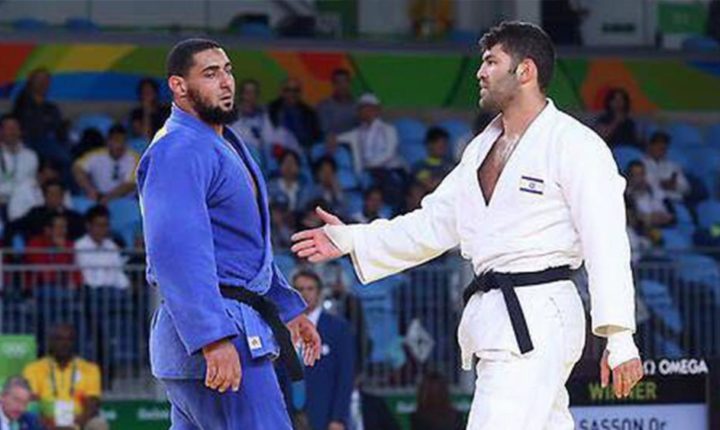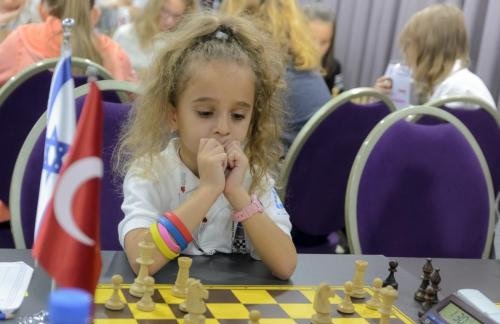
The ability of competition to help mediate political conflict is a powerful force. Often times in the international arena we are able to witness athletes from varying nations, often ones who are hostile to one another, come together and achieve a temporary peace when competing in sporting events. This is most apparent in the Olympic Games, where all nations are able to be prideful and represent themselves in a mutually respectful manner. Sadly, this luxury is not awarded to every country, in fact, only one country is exempt from this beautiful reality. The State of Israel, the Jewish State, has time and time again been barred from international tournaments, their athletes disrespected, or as we saw in 1972, their athletes slaughtered at the Munich Olympics. Israel has many enemies and a complex and controversial geopolitical climate. None of that matters. Athletes are not political entities, they had no choice in their birthplace or national identity. Israeli athletes just as anyone else vary in religion, ethnicity, and political opinion; they are simply athletes competing in a sport they love for the country they were born in.
In the past few years, there have been multiple high profile boycotts and discriminatory practices applied to Israeli athletes. In 2016, the Grand Slam Judo championship was being held in the United Arab Emirates, and Israel had 12 athletes competing. The Israeli athletes were told they would not be allowed to have the Israeli flag on their uniforms, as well not have the “ISR” acronym by their names on the scoreboard. Instead, they would be competing in the competition as representatives of the International Judo Federation, not as Israelis. If that wasn’t disrespectful enough, if any of the athletes won a gold medal their national anthem, Hatikvah, would not be played. Israel was the only country who faced any discriminatory policy.

What happened to the Judo athletes is wrong and needs to be addressed, however, it pales in comparison to implementing the same policy towards children. Tunisia, a country with no geopolitical border dispute or history of conventional military conflict with Israel, has on multiple occasions barred Israeli children from competing in international sporting events held in the country. Earlier this year in 2018 a Tunisian court barred four Israeli athletes from competing in an international Junior Taekwondo Championship being held in Tunis. This decision was implemented after a group called, the National Commission for Supporting Arab Resistance and Opposing Normalization and Zionism, filed a suit against the president of the Tunisian Taekwondo Federation. The suit proclaimed hosting the athletes would violate Tunisia’s political decision of “denouncing and refusing Zionist occupation and colonization, as well as boycotting and not dealing with the Zionist entity in any way.”
Tunisia’s policy has continued where just this past summer the state denied a visa to Liel Levitan. Liel is a 7-year-old Israeli girl who was the winner of the 2018 European Union U7 chess tournament and was set to compete in the U7 division of the World Chess Championship Held in Tunisia. How wretched does one have to be to let their political disputes interfere with a young girls right to compete in a chess tournament? This sort of discrimination transcends any political opinion, it crosses into deeply anti-semitic territory and also perpetuates a dangerous double standard.

When Israel hosts international competitions they do not implement any policy barring citizens based solely off of nationality. The United Nations condemns Syria, North Korea, and Iran routinely for human rights violations. I can firmly say I would never advocate for the barring of any athlete, especially a child, from any of the aforementioned countries from competing in a competition – as children have no relation to their governments’ practices or policies. Luckily for Liel after weeks of international pressure from various groups including the World Chess Federation who threatened to pull Tunisia’s right to host the event, they bowed and granted Liel the right to compete in the tournament.
Israel has taken tangible steps to promote inclusivity within its athletics. A great example is The Equalizer, a social and athletic group for marginalized communities within Israel. Students come from all backgrounds Arab, Muslim, Druze, Jewish both secular and religious, Bedouins, and new immigrants. The Equalizer is also egalitarian catering to both boys and girls. In the recent 2017-2018 season roughly 3,500 kids participated spanning across countless ethnic and regional boundaries. The kids meet multiple times a week to play soccer and learn about educational issues. The objective is to create understanding, respect, and coexistence. If these ideas are taught from an early age then you have a much better chance of them being internalized and practiced by these kids as they grow up.
The University of Arkansas brings in students from all across the world to represent us within our athletic teams. These athletes who leave their homes and travel sometimes thousands of miles to become Razorbacks; do a phenomenal job of representing us and displaying our values. The University has no policy of international discrimination, when we recruit international athletes it’s based on their skill and performance, their nationality would not be the preventative factor in them being recruited. Just as we agree discrimination should never take place in Arkansas, then we can agree it should never take place in Tunisia or anywhere else in the world. Periodically bowing to international pressure is not good enough, and when it affects children it becomes a more grave endeavor. No child should feel the grotesque consequences of discrimination and political strife. Tunisia and any other state that’s barred entry of Israeli athletes has made a public statement. That they have no desire to advocate for peace or seek an end to the conflict. They have in practice declared every Israeli, even children, enemies of the state and not worthy of basic decency and respect. As Razorbacks we would not stand for the university to implement discriminatory practices into our athletic recruiting or athletic policy in any manner. Our Razorback values need to transcend our local reality; fixing our community improves the world, and fixing the world improves our community.
Noah Bradshaw is a Junior studying Political Science and a CAMERA Fellow at the University of Arkansas.

